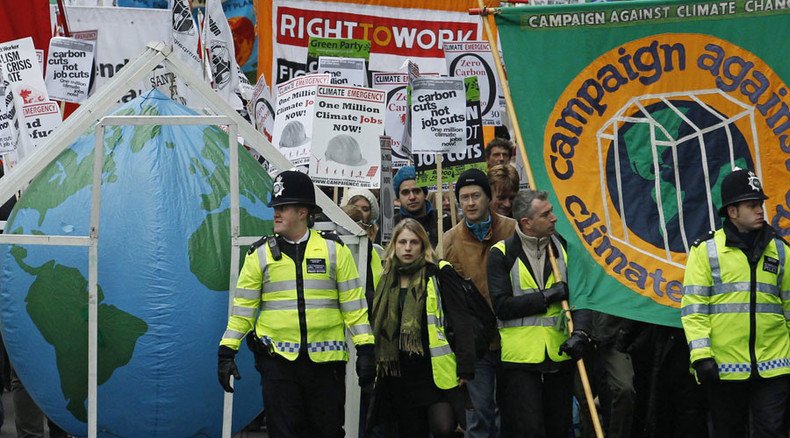ICJ should quash climate skeptics’ claims with official ruling, says legal expert

Spurious claims that humans are not driving climate change and that sea levels are not rising should be quashed by an International Court of Justice ruling, a professor of International Law at University College London has said.
To date, numerous scientific bodies such as the UN’s climate science panel have confirmed that climate change is a reality and is being driven by human activity.
However, an official ruling on the matter by a global heavyweight such as the International Court of Justice (ICJ) could hold a greater influence on public opinion and set the bar for legal cases focused on climate change.
If the @ICJ_org does not seriously tackle climate change issues in court then it risks irrelevance says @philippesands#climatecourts
— Isabel Bottoms (@IBottoms) September 17, 2015This proposal was floated by Philippe Sands QC, who lectures at University College London, in Britain’s Supreme Court on Thursday. He made the suggestion ahead of a three-day conference on climate change and international law hosted by King’s College London.
Among the topics scheduled for discussion throughout the conference are climate change law and the legally disruptive nature of climate change.
Speaking ahead of the event, Sands said the ICJ could play a vital role in settling the long-running scientific rift surrounding climate change.
“One of the most important things an international court could do – in my view it is probably the single most important thing it could do – is to settle the scientific dispute,” he said.
“A finding of fact on one or more of these matters [such as whether climate change is man-made], or indeed on other pertinent matters, would be significant and authoritative and could well be dispositive on a range of future actions, including negotiations.”
Sands called upon the UN General Assembly to pass a resolution demanding the ICJ offer an advisory ruling on the responsibilities states have in terms of thwarting climate change. The world court could also make countries’ commitments to tackle the climate crisis legally binding, he said.
Law can help build solidarity between states in acting on climate change by creating clarity of obligations #climatecourts
— Isabel Bottoms (@IBottoms) September 17, 2015The barrister went on to describe a domestic court’s ruling in June forcing the Dutch government to slash its emissions at a faster rate by 2020 as “remarkable.”
His remarks come as environmentalists sharply criticize Prime Minister David Cameron for appointing an ex-oil and gas industry official as his top advisor on energy and environment policy.
Stephen Heidari-Robinson, a consultant from oilfield services firm Schlumberger, will arrive at Number 10 just months before Cameron is set to attend the UN’s global climate change summit in Paris.
Heidari-Robinson will serve the PM as a leading energy and environment adviser, liaising with top ministers and officials in Whitehall.
He formerly advised a number of top energy firms, including BP, Shell and Chevron.
#DECCQs@lisanandy asks the Government to ensure the UK plays a leadership role at Paris climate talks this year pic.twitter.com/pVuc7J3YUd
— Labour Energy (@labourenergy) September 17, 2015Throughout the past 12 months, environmentalists have signaled alarm over Cameron’s desire to develop Britain’s shale and gas industry. The government’s firm commitment to shale gas was highlighted in August when ministers vowed to intervene on planning applications for fracking if councils fail to act promptly enough.
Some climate scientists continue to claim climate change is a fallacy despite mounting evidence which proves otherwise. Meanwhile, a growing chorus of climate science experts and citizens worldwide are calling for more stringent action to tackle the global climate crisis.
Sands, who has authored books on the Iraq war interrogation techniques, warns that failure to act on climate change would create a more serious refugee crisis than what we are witnessing today.
“The events of the past weeks in Europe, in relation to forced migrants and refugees, underscores the consequences of a failure to have a proper framework to deal with crises of these kinds, and the terrible human consequences,” he said.
“Appalling as the current situation is, it will be as nothing compared to what climate change may bring.”












